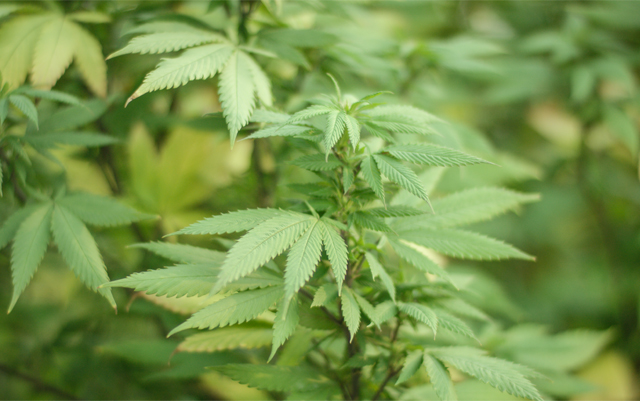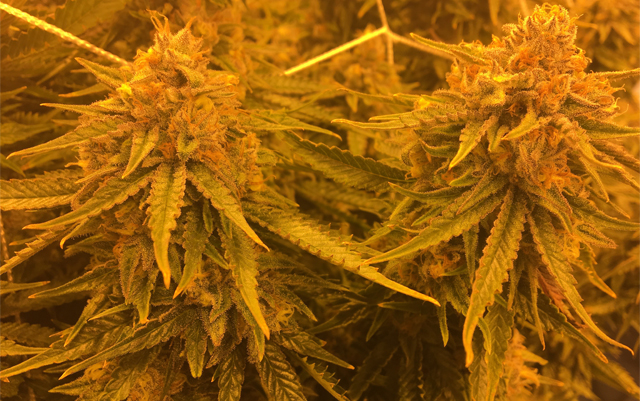THCengineer
Member
Psychiatrists say cannabis could be beneficial in treating various mental disorders.
Psychiatrists say cannabis could be beneficial in treating various mental disorders.

Psychiatrists say cannabis could be beneficial in treating various mental disorders.
By Jason Sander on Jul 14, 2017 12:55 pm
Cannabis is currently not classified or typically thought of as a psychedelic, but some mental health professionals say they would like to change that. It has been suggested that psychedelics – such as mushrooms – could also treat depression, PTSD, alcoholism, and so on. And psychiatrists also now believe that cannabis has some psychedelic properties that could be beneficial in treating various mental disorders. While this is certainly not news to anyone privy to the vast benefits of cannabis medicine, the study put out by these mental health professionals raises some interesting points.
While attending a recent conference in London regarding the science of psychedelics, New York psychiatrist Julie Holland suggested that cannabis medicine could be linked to “de-habituation” – an effect that is experienced by psychedelic drug users. This term is used by some mental health professionals to describe the experience a user might have on mushrooms in which they experience life in a child-like state of wonder, and that things that were once mundane and uninteresting end up becoming enthralling and engaging. According to Holland, some cannabis medicine might cause users to feel the same type of effect, which she believes could be a useful tool in treating mental health issues.
“The thing that I’m interested in with cannabis is how it does this thing where everything old is new again. That can be very helpful in psychiatry,” Holland said in an article appearing in Business Insider.
Holland is currently involved in a Multidisciplinary Association for Psychedelic Studies (MAPS) study with the goal of determining whether cannabis is an effective treatment for veterans suffering from PTSD.
As with every other much-needed study on cannabis, of course the absurd stronghold of the federal government continually refusing to reclassify the medicine away from its current schedule one designation halts any would-be progress that such research would discover. Despite that absurdity, it is great to see mental health professionals such as Holland being open and vocal about her desire to possibly treat disorders with something other than potentially harmful pharmaceuticals. We need more doctors, nurses, science and medical educators and mental health professionals like Holland to have the courage to come forward and say enough is enough: Cannabis is indeed effective medicine, whether the powers that be like that fact or not.
What are your thoughts on the possible psychedelic properties of cannabis medicine? Do you think there is any merit to these statements?
Psychiatrists say cannabis could be beneficial in treating various mental disorders.

By Jason Sander on Jul 14, 2017 12:55 pm
Cannabis is currently not classified or typically thought of as a psychedelic, but some mental health professionals say they would like to change that. It has been suggested that psychedelics – such as mushrooms – could also treat depression, PTSD, alcoholism, and so on. And psychiatrists also now believe that cannabis has some psychedelic properties that could be beneficial in treating various mental disorders. While this is certainly not news to anyone privy to the vast benefits of cannabis medicine, the study put out by these mental health professionals raises some interesting points.
While attending a recent conference in London regarding the science of psychedelics, New York psychiatrist Julie Holland suggested that cannabis medicine could be linked to “de-habituation” – an effect that is experienced by psychedelic drug users. This term is used by some mental health professionals to describe the experience a user might have on mushrooms in which they experience life in a child-like state of wonder, and that things that were once mundane and uninteresting end up becoming enthralling and engaging. According to Holland, some cannabis medicine might cause users to feel the same type of effect, which she believes could be a useful tool in treating mental health issues.
“The thing that I’m interested in with cannabis is how it does this thing where everything old is new again. That can be very helpful in psychiatry,” Holland said in an article appearing in Business Insider.
Holland is currently involved in a Multidisciplinary Association for Psychedelic Studies (MAPS) study with the goal of determining whether cannabis is an effective treatment for veterans suffering from PTSD.
As with every other much-needed study on cannabis, of course the absurd stronghold of the federal government continually refusing to reclassify the medicine away from its current schedule one designation halts any would-be progress that such research would discover. Despite that absurdity, it is great to see mental health professionals such as Holland being open and vocal about her desire to possibly treat disorders with something other than potentially harmful pharmaceuticals. We need more doctors, nurses, science and medical educators and mental health professionals like Holland to have the courage to come forward and say enough is enough: Cannabis is indeed effective medicine, whether the powers that be like that fact or not.
What are your thoughts on the possible psychedelic properties of cannabis medicine? Do you think there is any merit to these statements?





